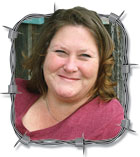Ozarks Farm & Neighbor has been around for decades, but folks sometimes need clarification about what we do.
We get calls from people who think they are calling someone else or a different business. Because we have done a story on that farm, individual or business, our story can be one of the top links on an internet search, and our phone number pops up.
We’ve gotten phone calls looking for cattle and inquiries about plants, net wrap, lick tubs, seeders, and other things. We point the caller in the right direction when this happens.
I took a call from a lady who instantly began asking for an appointment because she was new to the area, and her two dogs needed vaccinations. One had an upset tummy from the move, and so on. I kept saying, “Ma’am, we aren’t a vet clinic… Ma’am, I’m sorry, but you have the wrong number,” but she kept giving me her dog’s ages, personality traits, ailments and names.
It took a few tries, but she finally stopped.
“What is it you do?” she asked.
“We share stories about farmers and ranchers in the Ozarks. By the way, your dog can have a little canned pumpkin to help with the tummy issues; not pumpkin pie mix, but canned pumpkin,” I responded. She hung up on me.
Phone calls aren’t the only cases of mistaken identity at OFN. One of the most memorable visitors at the old office, which was about 5 miles south of town, was a guy who came in asking for antibiotics for his cat. We finally convinced him he would need to go back into town to find a veterinarian, but he wasn’t happy about it.
Like OFN, the public is sometimes confused about what farmers and ranchers do. Not all farmers raise cows. Not all farms have chickens or pigs, and not all farmers grow crops. Not every farming operation is a “factory farm,” despite the claim that 99 percent of the U.S. farms are just that.
Farms and ranches aren’t dens of animal abuse, and no one is torturing animals for profit. Crop producers aren’t sitting back like a villain in an old cartoon, laughing at the thought of taking over the world with genetically modified corn and soybeans.
When looking for information, they go to the internet and click on the first suggested links. Those links may or may not have the correct information.
What can producers do to dispel misinformation? Show the public what you do. When asked, allow a group, be it a school group or other parties, to tour your farm or ranch. Join your local Chamber of Commerce or become involved in community events where you can socialize with folks who might have questions about agriculture. Help start a new tradition, like a “Farm Day on Main Street.” Get families, especially the younger generation, outside and see first-hand what happens on a farm.
It’s time to start a positive, hometown, grassroots movement about our industry. And who is better at growing grass than a farmer?
Julie Turner-Crawford is a native of Dallas County, Mo., where she grew up on her family’s farm. She is a graduate of Missouri State University. To contact Julie, call 1-866-532-1960 or by email at [email protected].






